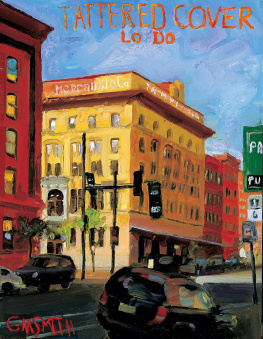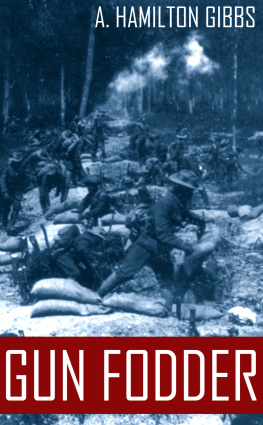Gibbs - BATTLES OF THE SOMME (CLASSIC REPRINT)
Here you can read online Gibbs - BATTLES OF THE SOMME (CLASSIC REPRINT) full text of the book (entire story) in english for free. Download pdf and epub, get meaning, cover and reviews about this ebook. City: S.l, year: 2016, publisher: FORGOTTEN BOOKS, genre: History. Description of the work, (preface) as well as reviews are available. Best literature library LitArk.com created for fans of good reading and offers a wide selection of genres:
Romance novel
Science fiction
Adventure
Detective
Science
History
Home and family
Prose
Art
Politics
Computer
Non-fiction
Religion
Business
Children
Humor
Choose a favorite category and find really read worthwhile books. Enjoy immersion in the world of imagination, feel the emotions of the characters or learn something new for yourself, make an fascinating discovery.
BATTLES OF THE SOMME (CLASSIC REPRINT): summary, description and annotation
We offer to read an annotation, description, summary or preface (depends on what the author of the book "BATTLES OF THE SOMME (CLASSIC REPRINT)" wrote himself). If you haven't found the necessary information about the book — write in the comments, we will try to find it.
Gibbs: author's other books
Who wrote BATTLES OF THE SOMME (CLASSIC REPRINT)? Find out the surname, the name of the author of the book and a list of all author's works by series.
BATTLES OF THE SOMME (CLASSIC REPRINT) — read online for free the complete book (whole text) full work
Below is the text of the book, divided by pages. System saving the place of the last page read, allows you to conveniently read the book "BATTLES OF THE SOMME (CLASSIC REPRINT)" online for free, without having to search again every time where you left off. Put a bookmark, and you can go to the page where you finished reading at any time.
Font size:
Interval:
Bookmark:
This book made available by the Internet Archive.




Printed in Great Britain
CONTENTS
CHAP. PAGE
I. THE HISTORIC FIRST OF JULY 21
II. THE FIRST CHARGE 36
III. THE FIELD OF HONOUR 43
IV. THE DEATH-SONG OF THE GERMANS 52 V. THE ATTACK ON THE LEFT 59
VI. THE LONDON MEN AT GOMMECOURT 64
VII. THE MEN WHO FOUGHT AT FRICOURT 71
VIII. How THE PRUSSIANS FELL AT CONTALMAISON 78
IX. A CAMEO OF WAR 85
X. THE ASSAULT ON CONTALMAISON 89
XI. THE BATTLE OF THE WOODS 97
XII. THE FIGHT FOR OVILLERS 103
XIII. THROUGH THE GERMAN SECOND LINE 110
XIV. THE WOODS OF DEATH 126 XV. PRISONERS OF WAR 131
XVI. THE LAST STAND IN OVILLERS 135
XVII. THE SCOTS AT LONGUEVAL 138
XVIII. THE DEVIL'S WOOD 143
XIX. THE WORK OF THE GUNS 154
XX. THE FIGHTING ROUND WATERLOT FARM 159
XXI. THE PETER PANS OF WAR 163
XXII. THE HIGH GROUND AT POZIERES 168
CHAP. PAGE
XXIV. THE ATTACKS ON THI^PVAL 202
XXV. THE LAST FIGHTS IN DEVIL'S WOOD 217
XXVI. THE AUSTRALIANS AT MOUQUET FARM 223
XXVII. THE CAPTURE OF GUILLEMONT 230
XXVIII. THE IRISH AT GINCHY 246
XXIX. THE COMING OF THE TANKS 253
XXX. FIGHTING BEYOND FLERS 267
XXXI. MONSTERS AND MEN 272
XXXII. LONDON PRIDE 28
XXXIII. THE SPLENDID NEW-ZEALANDERS 28
XXXIV. THE CANADIANS AT COURCELETTE 294 XXXV. THE ABANDONMENT OF COMBLES 29
XXXVI. THE DOOM OF THI^PVAL 307
XXXVII. NORTHWARD FROM THI^PVAL 317
XXXVIII. THE WAY TO BAPAUME 326 XXXIX. THE GERMAN VERDICT ON THE SOMME
BATTLES 33]
THE BATTLES OF THE SOMME
THE COMING OF THE NEW ARMIES
IN this book I have put together the articles which I have written day by day for more than three months, since that first day of July 1916 when hundreds of thousands of British troops rose out of the ditches held against the enemy for nearly two years of trench warfare, advanced over open country upon the most formidable system of defences ever organized by great armies, and began a series of battles as fierce and bloody as anything the old earth has seen on such a stretch of ground since the beginning of human strife.
Before July 1 I had an idea of writing a book about all that I had seen for nearly eighteen months, since I abandoned the hazardous game of a freelance in the war-zones of France and Belgium (to me those were the great and wonderful days) and became officially accredited as a correspondent with the British armies in the field. I had seen a good deal in the trenches and behind the linesnearly all there was to see of stationary warfare from Ypres to the Somme, and enough to understand with every nerve in my body not only the abomination of this doom which put fine sensitive men into dirty mudholes and sinister ruins, in exile from the comforts and beauty and decency of life, under the continual menace of death or mutilation, but also the valour of great numbers of simple souls who hated it all and yet endured it with a queer gaiety, and laughed even while they cursed its beastliness, and resigned themselves to its worst miseries like Christian martyrs with a taste for beer and the pictures of the " vie
* A
parisienne." I had seen, and suffered from, the boredom of this stationary warfarean intolerable boredom it is, demoralizing to men whose imaginations demand something brighter and more varied than a glimpse through the sandbags at the same old fringe of broken tree, the same old ruined house, the same old line of chalky trenches, from which death may come at any moment by rifle-grenade, sniper's bullet, or whizz-bang which is not an exciting form of death giving men the thrill of dramatic moments before they drop. Even in this danger there was no cure for the deadening monotony after the first few days of new experience. It was just another part of the dirty business, and, for men of nerves, a nagging appre hensive thought, varied by moments of cold, horrible fear. Behind the lines, on supply columns, at railheads, in billets, in squalid villages of Flanders and Picardy with their rows of miserable estaminets and evil-smelling farmyards, Boredom, monstrous and abominable, sat like a witch-hag on the shoulders of many men, divorced from the interests of their old home life, from their women-folk, from the reasonable normal routine of peaceful careers. Discipline and duty had taken the place of personal ambitions and the joy of life, and they are cold virtues, very comfortless. Artists, actors, barristers, writers, sportsmen, and men who had found good fun in youth and the wide world, or some corner of it, found themselves as officers on supply columns, R.T.O.'s, D.A.D.O.S.'s, and in other administrative jobs, condemned to a drudgery melancholy in its limitations and apparently interminable. To many of them their area of activity was confined between one squalid village and another, and the chance of a stray shell or of an aeroplane bomb did not really brighten up the scene.
They fought against this desolation of mind valiantlyand it wanted valourforced themselves to get absorbed in the minute details of their work, sent for the old banjo from home, organized canteens, smoking concerts, boxing matches, culti vated cheeriness as the first law of daily life until it became a second nature, beneath which the first nature only obtruded at night when they went back to sleep in their billets and before sleeping cried out in a kind of agony, " How long is this going on ?this Insanity, this waste of life, this unnatural, damned existence ! "
The fighting men had all the danger and, on the whole, were less dull during the long period of stationary warfare. They too cultivated cheerfulness as the first law of daily life, and it was a harder job, yet they succeeded wonderfully in spite of the filthy trenches, the rats and vermin, the ice-cold water in which they waded up to the front line during the-long months of a Flemish winter (beginning in October and ending - -perhapsin April), the trench-feet which for a time -until rubbing-drill was adopteddrained the strength of many battalions, and the enemy's shell-fire and mining activities which took a daily toll of life and limbs. Many of them found a gruesome humour in all this, laughed at death as a low comedian, guffawed if they dodged its knockabout tricks by the length of a traverse, and did not go very sick if it laid out their best pal. " You know, sir, it doesn't do to take this war seriously." So said a sergeant to me as we stood in a trench beyond our knees in water. It was a great saying, and I saw the philosophy which had kept men sane. Without laughter, somehow, anyhow, by any old joke, we should have lost the war long ago. The only way to avoid deadly depression was to keep smiling. And so for laughter's sake and to keep normal in abnormal ways of life there was a great unconscious conspiracy of cheerfulness among officers and men, and the most popular man in a platoon was the fellow who could twist a joke out of a dead German, or the subaltern who could lead a patrol into No Man's Land with men chuckling over some whimsical word about his widow, or the comic corporal who could play ragtime tunes on a comb and tissue-paper. Behind the lines there were variety theatres in old warehouses ventilated by shell-holes, packed by muddy men just out of the trenches, who found it difficult to laugh for the first half-hour and then roared with laughter at funny fellows dressed as Mrs. Twankey, or Charlie Chaplin, or the red-nosed comic turn who satirized 4 brass hats '' and the Army Safety Corps and Kaiser Bill, and the effect of a 17-inch shell in the neighbourhood of Private Spoof kins, V.C.
Font size:
Interval:
Bookmark:
Similar books «BATTLES OF THE SOMME (CLASSIC REPRINT)»
Look at similar books to BATTLES OF THE SOMME (CLASSIC REPRINT). We have selected literature similar in name and meaning in the hope of providing readers with more options to find new, interesting, not yet read works.
Discussion, reviews of the book BATTLES OF THE SOMME (CLASSIC REPRINT) and just readers' own opinions. Leave your comments, write what you think about the work, its meaning or the main characters. Specify what exactly you liked and what you didn't like, and why you think so.
















